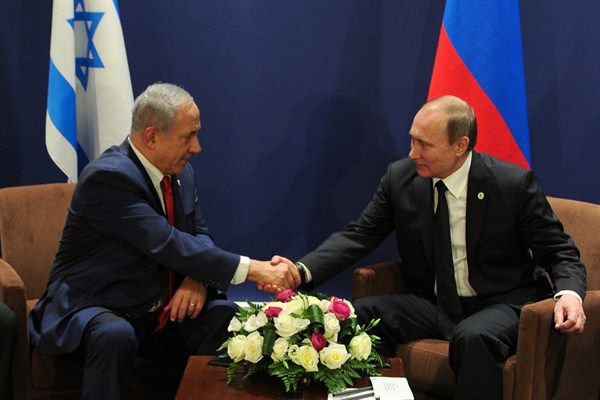Israeli President Reuven Rivlin has canceled a March trip to Australia in order to meet with Russian President Vladimir Putin in Moscow instead. In an email interview, Michael Koplow, a policy director at the Israel Policy Forum, discussed Israel-Russia relations and the impact of the Syrian conflict.
WPR: What has been the recent trajectory of Israel-Russia political, economic and security ties?
Michael Koplow: The recent trajectory of Israel-Russia ties has been on the upswing. Vladimir Putin was the first Russian president to visit Israel, and Prime Minister Benjamin Netanyahu has cultivated ties with Russia for a number of reasons. Israel has a large Russian diaspora that makes up 10-12 percent of Israel’s population, and their deep bond to their former country makes cultivating closer ties with Russia politically expedient for Israeli politicians. In addition, Israel and Russia have both taken advantage of a perceived American withdrawal from the Middle East to forge closer ties, with Israel seeking to hedge its bets with another outside power and Russia seeking to poke the U.S. in the eye by gaining influence with one of its core regional allies. This has manifested itself in the political sphere, with Netanyahu and former Foreign Minister Avigdor Lieberman—himself a Soviet-era immigrant—having made heralded diplomatic trips to Moscow. Israel has also remained silent on issues that are important to Russia, such as the annexation of Crimea.

